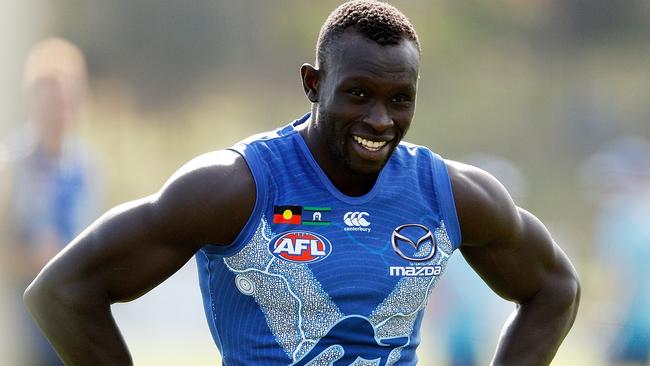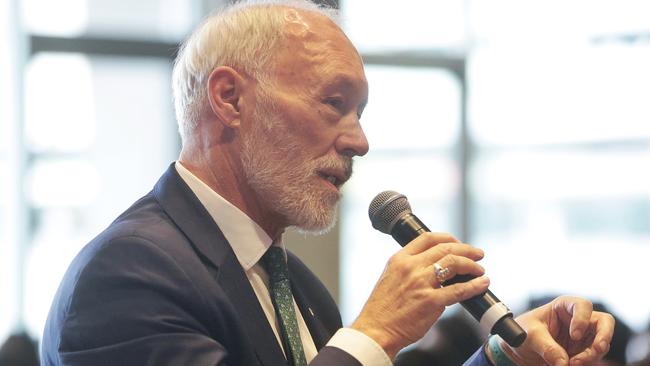Leading mental health experts call on AFL, clubs to do more for player mental health
The AFL and its clubs are under pressure to ramp up their support for players’ mental health, with a leading Australian psychiatrist saying the situation “needs to improve”.
VIC News
Don't miss out on the headlines from VIC News. Followed categories will be added to My News.
Leading mental health experts who work closely with AFL clubs and their players have advocated for a psychiatrist in every locker room.
As North Melbourne player Majak Daw recovers in hospital after an incident this week, a spotlight has shone on the mental health programs inside the AFL.
The Herald Sun understands just one AFL club employs an in-house psychiatrist, while most clubs have sports psychologists.
“The situation is not satisfactory at the moment and it needs to improve,” Australian leading psychiatrist Prof Patrick McGorry said.
EXPERT: MENTAL HEALTH SCARS HAUNT SPORTS STARS
NO QUICK-FIX FOR PLAYER WELFARE ISSUES
AFL APPOINTS FIRST INDIGENOUS COMMISSIONER

The former Australian of the Year and expert advisory council chair for the upcoming royal commission into mental health, said a club sports psychologist was not “sufficient enough to address the issue”.
“Sports psychologists alone are insufficient and a holistic approach including clinical expertise is essential,” he said.
“Sports psychologists have a role in optimising mental health to improve performance, however the player’s health itself must always be the top priority.”
Experts from Orygen Youth Health, where Prof McGorry works, have for years been working with the AFL and its clubs in a research and advisory capacity.
Orygen director of research and translation, Associate Professor Rosemary Purcell said having a sports psychologist “isn’t going to address everything by a long shot”.
“Sports psychologists look at, ‘How are we going to get that high performance out of athletes?’” she said.
“It would be great to have a psychiatrist in the locker room, and break down the stigma that you have to go and see a psychiatrist.
“But it’s a bit of a money issue, psychiatrists are expensive.”

Assoc Prof Purcell said having a mental health expert “isn’t going to be the magic bullet”.
“We are strongly advocating the need to address the mindset of physical toughness,” she said.
“What we do know is sports people and athletes have a less positive attitude about mental health and seeking help — (as if) it’s weakness if you have a mental health issue.
“But the more you minimise these things, the less opportunity for that early intervention — they can get help and get it quickly and get back on the field.”
Assoc Prof Purcell said “you have to move beyond awareness of mental health issues into action.”
Prof McGorry, who himself has treated AFL players and other elite athletes, said there were “special issues” that put them at greater risk, including their age and many unique pressures.
He has advocated for a specialised mental health centre for all sporting codes, that could complement and support the work done inside clubs.
“There are such centres for physical injuries, but nothing like this for mental injuries,” he said.
Prof McGorry said there could also be a conflict by having all mental health treatment located inside the club, rather than being outsourced to external experts.
“The agenda of the club is obviously dominated by sporting outcomes, and ideally but not necessarily the wellbeing of the player,” he said.
For urgent 24/7 crisis support, contact Lifeline on 13 11 14.


